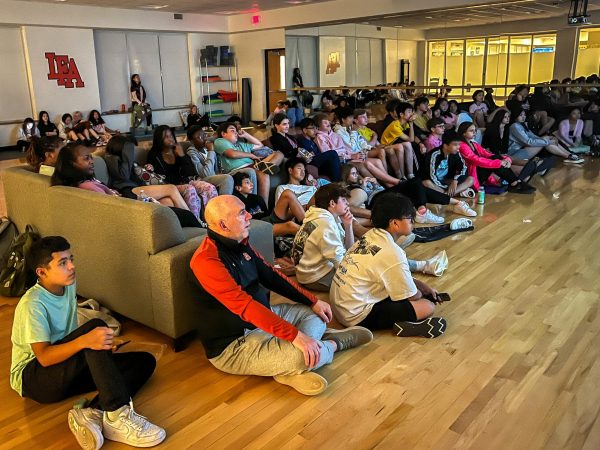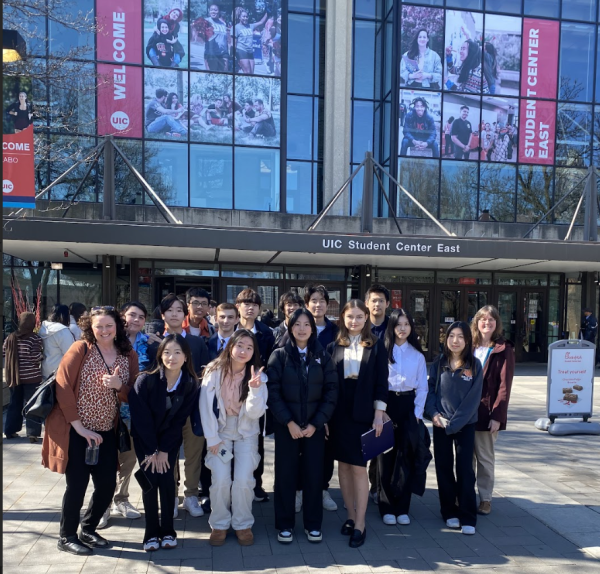Legalization of marijuana in Illinois: impacts on LFA and beyond
February 4, 2020
By Mia Walvoord
Editor in Chief
The use of medical marijuana for the treatment of certain neurological disorders and pain management is by no means a new phenomenon. The purchase of medical marijuana has been legalized in Illinois since December of 2014 for those who are at least 21 years of age.*
The recent, more “comprehensive,” legalization enacted in Illinois, has ignited more pointed discussions of the substance and its effects on adults and adolescents alike.
In Illinois, minors are legally able to obtain medical marijuana with written permission from their parents as well as a formal recommendation/prescription from a licensed medical professional.* When prescribed properly, cannabis-containing drugs are certainly able to offer much relief and benefit to their users. However, as with many medications, there is also some risk to be taken into account, especially when prescribing these sorts of drugs to adolescents.
According to the American Academy of Pediatrics, “… the developing adolescent brain is particularly at risk for the development of substance use disorders, although a number of factors are involved, including genetic predisposition, environment, and mental health disorders. The earlier the adolescent initiates substance use, the more likely a substance use disorder, such as dependence or addiction, is to occur.”
Due to this new legislation in Illinois, it is as crucial as ever, if not more so, to clarify LFA’s policy concerning the use of medical marijuana by members of its student body who are qualified to receive a prescription.
Chris Tennyson, Dean of Students, recognized that, “We have a number of students who, for a variety of reasons, take a variety of different medications, many of which are what we would consider to be controlled substances and so medical marijuana – similar to any of those other controlled substances – would be something that we would follow our policy, which is that those things would need to be kept at the infirmary.”
In large part, each student who is prescribed a controlled substance, including medicinal marijuana, undergoes a different and personalized experience when it comes to working out a situation in which they are able to receive that medication on school property. In general, though, there are several initial steps that students and their families must take in order to notify LFA of their prescription and needs. If, following consultation(s) and/or test(s), a doctor recommends that a student is prescribed medicinal marijuana, the student’s family should ideally inform the school right away. Then, the family would have a meeting with the Dean of Students to look over the necessary paperwork and specific recommendations from the doctor, etc. From there, each student’s experience is more personalized and it is impossible to predict the path it might follow.
For all students, day and boarding alike, who have been prescribed controlled substances (such as those used to treat depression and ADHD), their medications must be stored at the school’s infirmary and they must physically come into the office to take it.
Tennyson continued to explain this policy, noting that, “…we [LFA] would want that [medications] to be controlled and dispensed from the infirmary for a variety of reason: one is for the safety of the student, two is for safety of the community, and three is for the parents to know whether or not there has been compliance with their child taking their medication. An external professional has prescribed that for the benefit of that child and we want to make sure that that’s followed through on.”
In short, LFA’s policies regarding the use of medicinal marijuana remains largely unchanged, but in light of the recent legalization taking place in Illinois, it is an important topic to revisit and be made aware of.
*information obtained from the American Academy of Pediatrics















